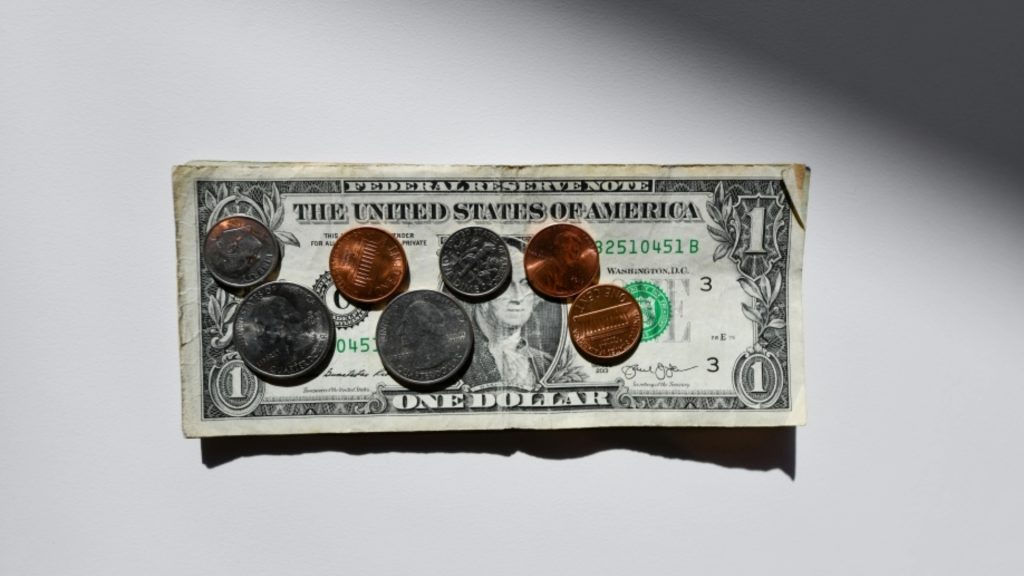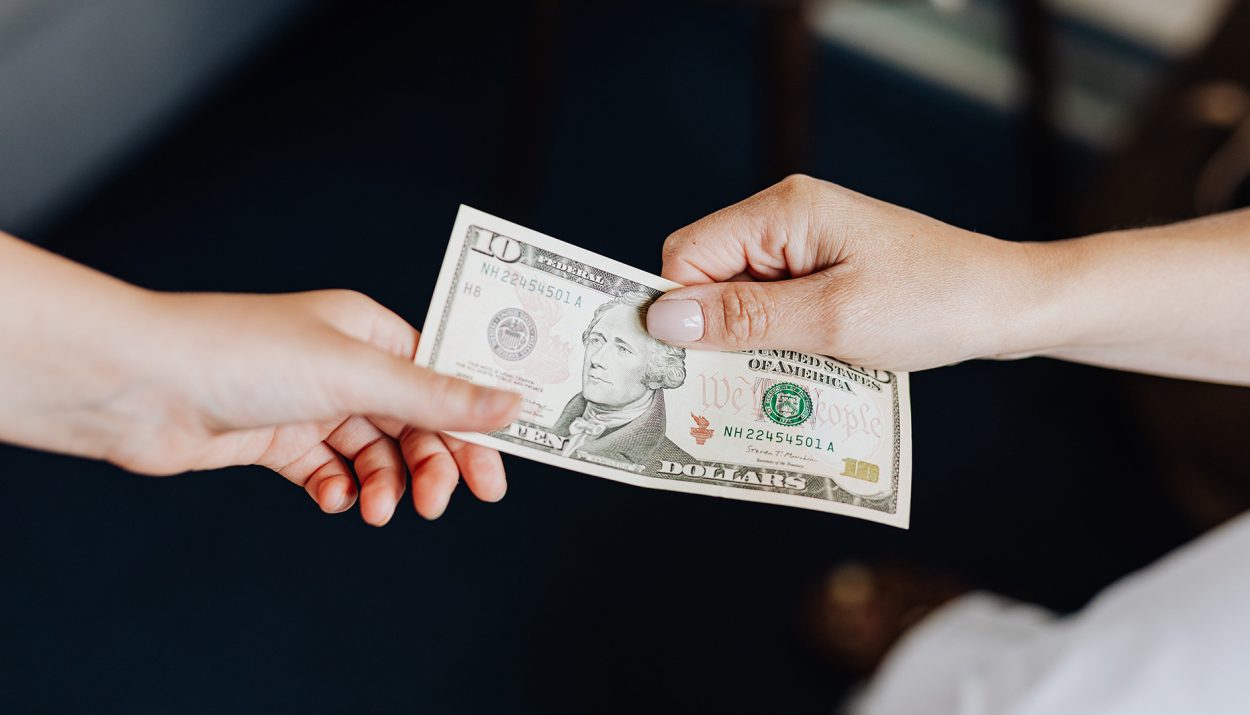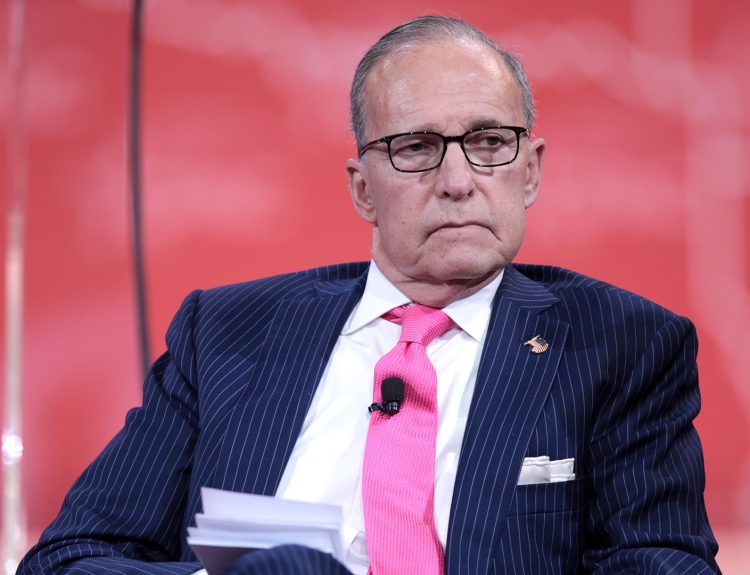American culture is unique in a lot of ways, and there are a lot of things that Americans do that other first-world countries around the world view as odd. Fascination with football and the culture around eating out and fast food are two such oddities, but one facet of American culture appears to be making its way to other countries, and they are not happy about it.
Would You Like to Leave a Tip?
In America, when you go to a restaurant or a bakery, you’re asked at the end if you would like to leave a gratuity for the workers who served you. Some restaurants are even allowed to add a mandatory tip to the bill at the end, if it’s over a certain amount or the party is large enough.

This is one of those oddities of American culture that other countries look at with some trepidation. Modern tipping culture is unique to America, and the history behind it is both fascinating and, depending on your view, a little upsetting.
Tipping Goes a Ways Back
Though contemporary tipping culture is largely an American asset, gratuity as a practice actually goes back hundreds of years, all the way to the Middle Ages. By the 17th century, visitors to different estates were expected to pay a gratuity that was called “vail,” potentially lowering the staff costs for the property itself.

Of course, when the success of this particular practice hit, there were those who sought to take advantage of it. Aristocrats would throw big parties in order to bring in extra cash, and slowly but surely, the practice began to spread to other countries, including England.
In England and France…
English coffeehouses were known to engage in a practice of putting an urn out that was inscribed with the phrase “To Insure Promptitude.” This was later distilled to the word “tip” and it was meant as a bonus to the house in order to receive better service from the workers.

In France, tips were placed in a box that was controlled by a proprietor of the establishment, rather than the workers themselves. The workers rarely got a cut of these tips, and in the early 20th century, French workers went on strike against what they saw as two great evils of their culture: the tipping box, and the ban on mustaches.
Bringing Tipping to America
American visitors to Europe brought the concept of tipping back to America, and it’s believed that it became popular largely due to one man. George Pullman made a practice of hiring formerly enslaved black workers, and using tips as a subsidy to their wages in order to get away with paying them as little as possible.

The practice spread widely, especially once the numbers were revealed of how much money the practice was saving the company. The workers themselves believed the practice was entirely unfair and fought to eliminate the tipping culture for a long time, but they were rebuffed at every turn, first by Pullman himself and then by the chairman of the company, Robert Todd Lincoln.
Into the Twentieth Century We Go
The practice expanded as the twentieth century began. In New York, individuals used to pay restaurants and theaters thousands of dollars a year to run their coat rooms, and would charge customers an arm and a leg for the privilege of keeping their hats and coats there.

The concessionaires came to be known as the tip trust, bringing in tens of thousands of dollars a year through these tiny businesses. Tipping was common practice towards those who ran the coat rooms or hat stands, and business practice at the time required that the employees turn all tips over to the owners of the concession.
Politically Powerful Trusts
The “tip trusts” that ran these businesses were very powerful politically, and economically. One of the most powerful men, Abraham Ellis, was known as the “Hatcheck King,” and his business brought in the equivalent of $60 million a year.

Of course, worker’s rights require change, and eventually the law was changed, banning employers from taking employee’s tips. While that was a welcome change to the culture of big cities such as New York, it didn’t change the culture around tipping as a whole.
America and Europe Parting
As the years went on, the difference between American tipping culture and the countries that it originated in began to grow further and further apart. In the middle of the twentieth century, Europe raised minimum wage standards for all employees in an attempt to provide a more equalized standard of living across the board, and the culture of tipping largely faded away.

In America, the opposite was true. In 1966, the United States Congress lowered the base wage that companies had to pay tipped workers. The justification behind this change was that workers who were receiving tips were earning far more than the minimum wage, so they could lower the base pay for businesses without hurting workers.
Minimum Wages Are For Living
The concept of a minimum wage in America has, from its inception during FDR’s presidency, been for any American to be able to make a solid, livable income from one job, no matter what that job was. It became law in 1938 with the Fair Labor Standards Act.

The idea behind lowering a minimum wage because an employee is making extra money on top of what the government should already be paying them is both stunning, and a little cruel. Yet, that is exactly what the United States government did, and the practice still continues today. Federally, the minimum wage for tipped jobs is a mere $2.13 an hour, less than a third of the federal minimum wage of $7.25.
Other Countries Watch, and Are Confused
As the years have gone by, the stark difference between America and other first-world countries as far as tipped services has grown more and more stark. Many other countries see the American practice of tipping their servers or their bakery workers as bizarre, and even a little demeaning.

After all, requiring that employees make most of their money on their tips is like asking a dog to beg for treats. They aren’t getting the bare minimum of what they should be, so service workers are often forced to endure hostile customers and work environments simply in order to make enough money to live.
A Reverse Pattern of Tipping
Fast forward to modern day, though, and it appears that American tipping culture has started the reverse spread of how it came to America. Other countries, including those in Europe, are starting to notice an expectation of further tipping beyond the included service in their bill.

This extends beyond mere restaurant work, as well. Bakery workers and owners of the butchery and tea shop have started offering the option to tip for service. While this might be common practice in America, there are some in other countries who are not just confused, they’re a little angry.
Why Should We Have to Tip?
Particularly in England, where service is included in the bill on any restaurant, this request of additional tipping seems absurd to many. The practice seemed to resurface during the pandemic, but now that many world economies have come back to a semblance of normal, some see the tipping practice as getting out of hand.

One opinion piece even wondered what the point of paying people additional money on top of their wages is, beyond the culturally acceptable practice of tipping someone who runs a coat room. After all, retail workers don’t ask for tips for doing their jobs and neither do freelancers, so why are service workers expected to be paid additional tips on top of their wages?
Admittedly, a Little Odd Outside of America
Admittedly, in countries where wages for all work are generally higher than they are in America, the practice of asking for additional tips seems a little odd. That’s not to say that servers don’t deserve to be appreciated for the work that they do, but when service is already included in the bill, it seems a little redundant.

The same cannot be said for America, where both labor laws and wage laws are far behind the rest of the world. Tips are the only reason that many servers make any sort of living wage, and they’re often forced to endure unfair working hours and conditions, cruel customers, and harsh management in order to bring home the bacon.
Servers Should Be Paid, That Much Can Be Agreed On
While the opinion on tipping seems to vary widely depending on where a person sits on the political spectrum, it’s fair to say that many think that servers deserve to be paid for the service that they do. In many countries, workers are already paid much more fairly for their work than they are in America, though in many cases, that still hasn’t kept up with the rise of global inflation.

In America, the story is a little different. The federal minimum wage hasn’t been raised in nearly 15 years, and until major adjustments are made around the way that workers are paid and appreciated, odd practices such as tipping are likely to stick around.
Tipping Culture Won’t Be Ignored
As the world gets smaller, it’s harder to ignore the way other people live. While Europeans might be unhappy about the resurgence of tipping cultures in their countries, it remains a fact that in many places – particularly in America – it is a way for many people to make an appropriate living.

The complaint of many is that asking for a tip makes it feel like a transaction, rather than a bonus for good service. While there may be some merit to that particular aspect of tipping culture, the fact remains that if the service was really that atrocious, you can always put “zero” on the bill.






